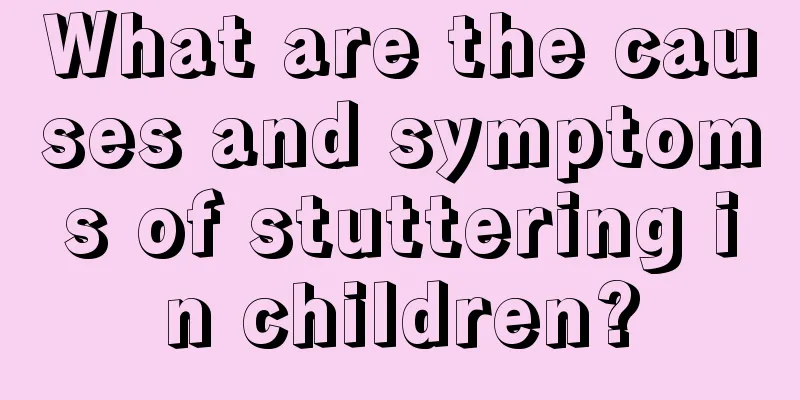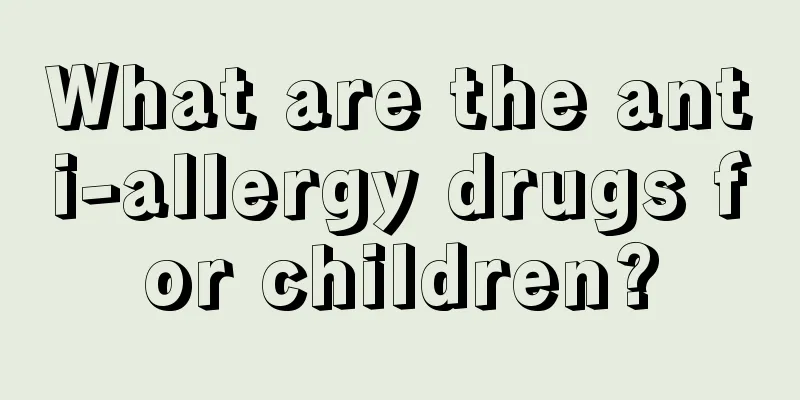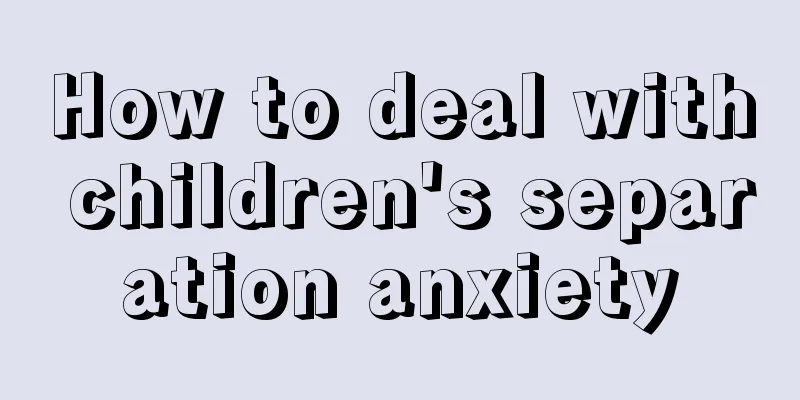What are the causes and symptoms of stuttering in children?

|
Children often stutter, which is commonly known as stammering. The specific manifestation is that they speak unfluently, may repeat the same word many times, speak for a longer time, and in severe cases, they may have speech disorders. There are many reasons for this symptom, such as psychological reasons. Therefore, as parents, we must find the cause based on the child's situation and then know how to solve it. First, the factors related to children's stuttering: 1. Genetic factors: The incidence of stuttering in the family can reach 36% to 55%. Some people think it is related to genetic factors and may be a single gene inheritance. Some people also found that left-handedness is more common among stuttering patients and their relatives. It is believed that stuttering is related to the dominant side of the brain. 2. Physical factors: Many children have been exposed to harmful factors during the perinatal period or infancy, such as pregnancy toxemia, bleeding or physical diseases in the fetal period, or certain infectious diseases during the development process, which weakened the nervous system and affected the speech function, leading to stuttering. 3. Psychological factors: Children's stuttering often occurs after acute or prolonged psychological trauma. Therefore, many theories believe that psychological factors may be an important cause of stuttering. 4. Other factors: Some preschool children suffer from stuttering due to imitation. Some data, based on the electroencephalogram, electromyogram of the articulatory muscles and the clinical efficacy of haloperidol, infer that stuttering may be related to factors such as increased activity of the limbic system and reticular formation complex, incoordination of articulatory muscle function and biochemical disorders in the basal ganglia. However, this still needs further clinical verification. Based on the research on the pathological mechanism of stuttering, it is believed that stuttering may be caused by the coexistence of multiple physiological and psychological factors. Second, clinical manifestations 1. Linguistic features (1) When speaking, the external language is expressed in a hurry, the speech speed is too fast, too urgent, and too fierce, and it cannot coordinate with the internal language. There is no normal rhythm and pause. This is the core content of stuttering disorder and the most fundamental reason why a person stutters. (2) Incoherent speech, repeated sounds, pauses, stuck sentences, and other language stuttering phenomena are the most obvious characteristics caused or resulting from the core content of stuttering. (3) Speaking is usually accompanied by physical exertion, chest tightness, shortness of breath, etc. In severe cases, there may even be gesticulation and facial muscle twitching and spasms while speaking. 2. Psychological characteristics (1) Emotional characteristics of stuttering Due to long-term stuttering, stutterers generally show psychological emotions such as inferiority, fear, and anxiety. For example, they are overly nervous or fearful before speaking; they often have a premonition of stuttering before speaking; they are afraid of being laughed at and have a face-saving mentality. Because of stuttering, they have an inferiority complex. Because of stuttering, they speak less or dare not speak, become introverted, have less interpersonal interactions, pursue perfection in personality, are sensitive, have anxiety, are competitive, and their self-esteem is easily hurt. (2) Cognitive characteristics of stuttering 1) They mistakenly believe that stuttering is a psychological illness and have tried many physiological treatments to correct it. But when they fail to achieve the desired results, they begin to believe that stuttering is an incurable disease, completely lose confidence, and develop a desperate and pessimistic mentality. 2) They believe that stuttering is an extremely terrible thing and that many of the things they cannot do well are caused by stuttering. They exaggerate, generalize and absolutize the harm caused by stuttering. Third, treatment 1. When the child speaks, he should be allowed to speak slowly, without being nervous or being reminded deliberately. 2. Treat it normally. If the parents are nervous, it will show in the tone of their voice and the child will be hinted at and will also become nervous, and their speech will become even less fluent. 3. Never make fun of, express disgust, threaten, or even hit or scold someone. 4. When the child is present, do not talk about him with others, do not imitate his stuttering, and protect his self-esteem. 5. Speak slowly to your child and pronounce each word clearly. At the same time, ask him to speak slowly and not in a hurry. Mild and moderate stuttering in children can heal itself, while severe stuttering requires correction. It is generally believed that about 80% of children with stuttering can heal themselves as they age, but early intervention by parents and correction is very important. First of all, parents' disappointment and discriminatory attitudes must be eliminated. Children should be reminded to speak slowly, and parents should not criticize or punish them. This can ease their nervousness, enhance their confidence, reduce their fear of stuttering, and prevent them from paying too much attention to what they are saying. |
<<: How to solve the problem of stuttering in children?
>>: What is the scientific method to correct children’s stuttering?
Recommend
Baby is straining to poop
Some parents find that their babies have to exert...
Children with rhinitis have stuffy nose when sleeping at night
During the day, because the body is vertically ho...
What to do if your 2-year-old baby has a runny nose
The weather in spring is changeable. It is cold i...
Symptoms of stomach pain in three-month-old baby
If your child is still very young and has not rea...
Pediatric variant asthma
The probability of children getting asthma is als...
Why does my child’s arm hurt?
Children are the apple of their parents' eyes...
These methods are effective in treating high muscle tension in babies
Every mother is extremely concerned about the hea...
How to induce sweating in children with fever
When a patient has a fever, everyone will let the...
How to take care of babies with allergies
It is said that mothers are the greatest people i...
What should I do if my two-month-old child has a cold and a stuffy nose?
Cold is a very common illness in children. Accord...
What to do if a 4-year-old has cavities?
Generally speaking, children have poor self-contr...
Does a child grow taller when he has a fever?
It is generally believed that fever is a disease ...
What causes redness and swelling of the glans in children?
Parents often find that their children always hav...
What to do if your child's ears itch
When the sensory nerve endings in the skin of the...
What to do if your child loves biting his lower lip
As children's bodies continue to grow and the...









